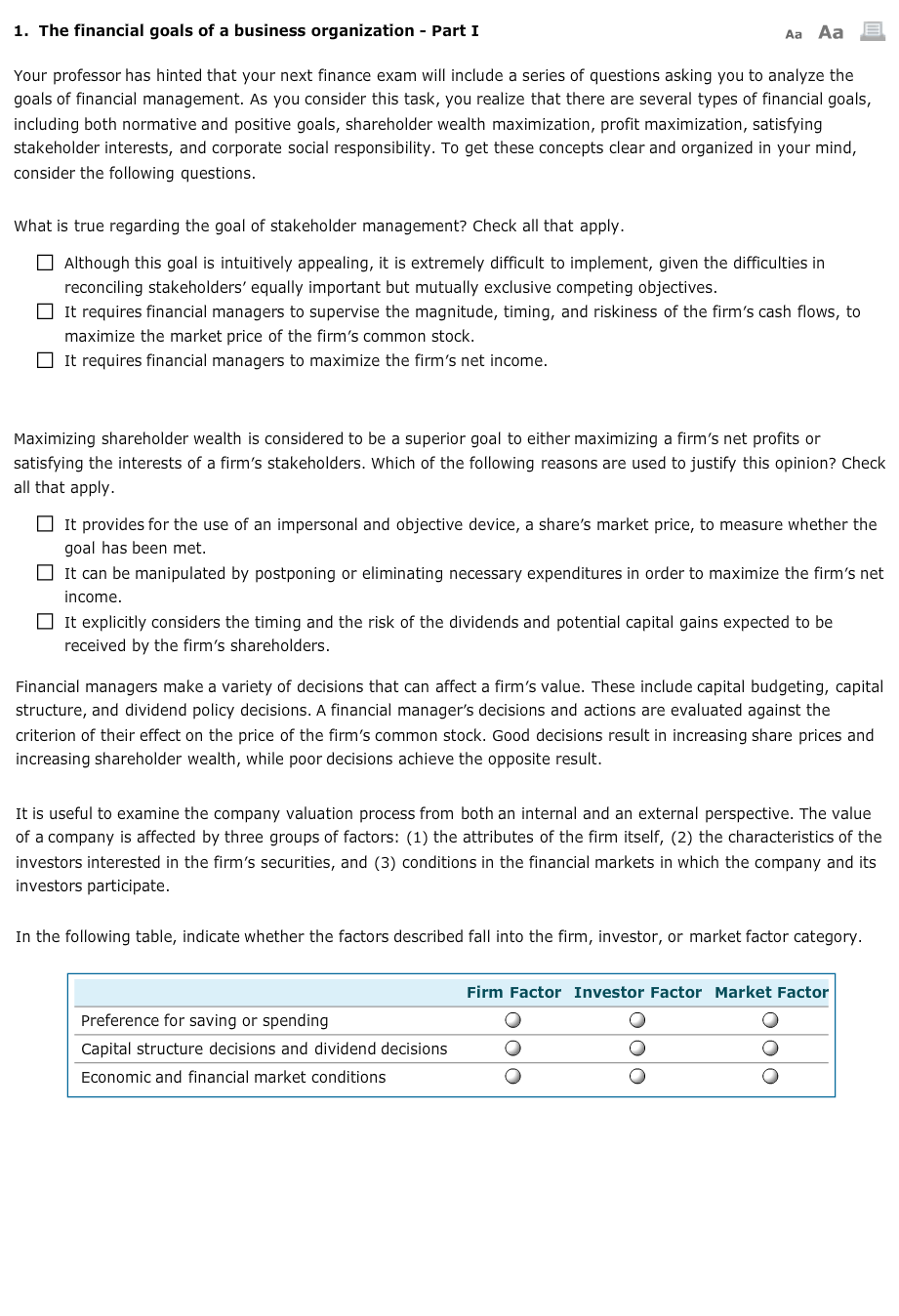Financial Goals of a Business...

Your professor has hinted that your next finance exam will include a series of questions asking you to analyze the goals of financial management. As you consider this task, you realize that there are several types of financial goals, including both normative and positive goals, shareholder wealth maximization, profit maximization, satisfying stakeholder interests, and corporate social responsibility. To get these concepts clear and organized in your mind, consider the following questions. What is true regarding the goal of stakeholder management? Check all that apply. Although this goal is intuitively appealing, it is extremely difficult to implement, given the difficulties in reconciling stakeholders' equally important but mutually exclusive competing objectives. It requires financial managers to supervise the magnitude, timing, and riskiness of the firm's cash flows, to maximize the market price of the firm's common stock. It requires financial managers to maximize the firm's net income. Maximizing shareholder wealth is considered to be a superior goal to either maximizing a firm's net profits or satisfying the interests of a firm's stakeholders. Which of the following reasons are used to justify this opinion? Check all that apply. It provides for the use of an impersonal and objective device, a share's market price, to measure whether the goal has been met. It can be manipulated by postponing or eliminating necessary expenditures in order to maximize the firm's net income. It explicitly considers the timing and the risk of the dividends and potential capital gains expected to be received by the firm's shareholders. Financial managers make a variety of decisions that can affect a firm's value. These include capital budgeting, capital structure, and dividend policy decisions. A financial manager's decisions and actions are evaluated against the criterion of their effect on the price of the firm's common stock. Good decisions result in increasing share prices and increasing shareholder wealth, while poor decisions achieve the opposite result. It is useful to examine the company valuation process from both an internal and an external perspective. The value of a company is affected by three groups of factors: (1) the attributes of the firm itself, (2) the characteristics of the investors interested in the firm's securities, and (3) conditions in the financial markets in which the company and its investors participate. In the following table, indicate whether the factors described fall into the firm, investor, or market factor category







